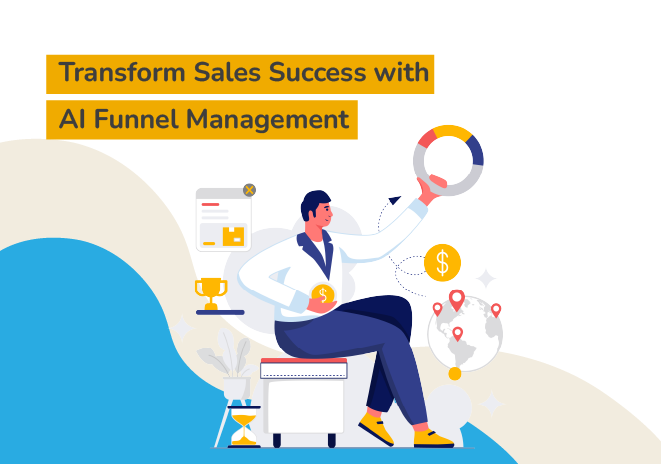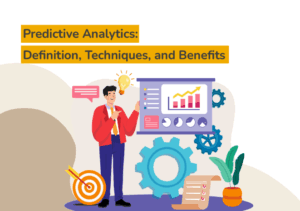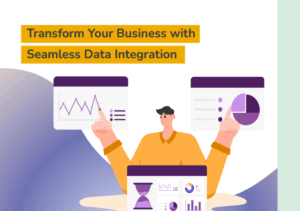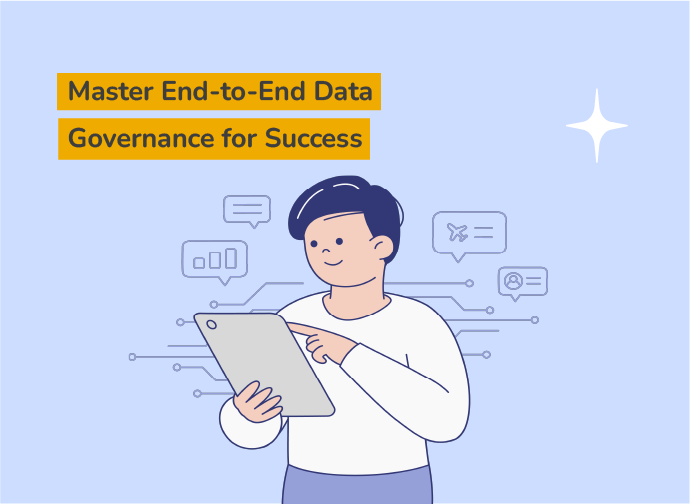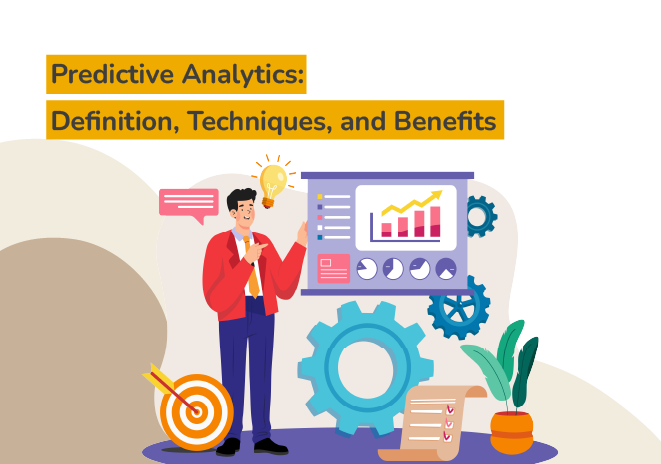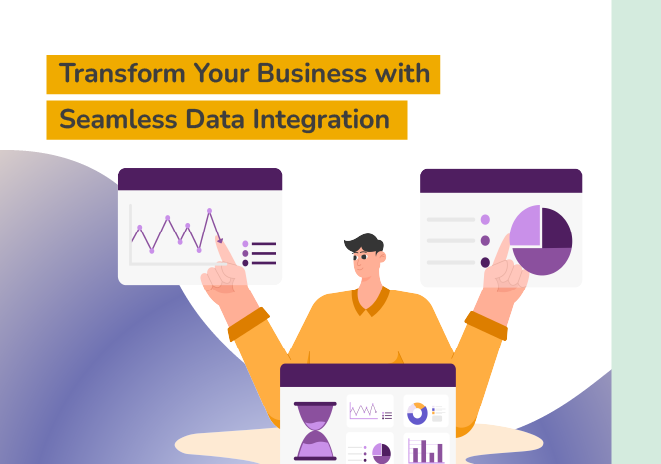What is AI Funnel Management?
AI Funnel Management is a transformative approach that leverages artificial intelligence to optimize sales processes. At its core, AI Funnel Management combines automation, data analysis, and predictive modeling to streamline every stage of the sales funnel. Key components include AI-driven lead identification, customer segmentation, and engagement personalization. By harnessing these technologies, businesses can improve conversion rates, shorten sales cycles, and enhance customer experiences. This innovative method not only automates repetitive tasks but also provides actionable insights, enabling sales teams to focus on high-value activities and strategic decision-making.
| Key Components |
|---|
| Lead Identification |
| Customer Segmentation |
| Engagement Personalization |
Key Takeaways
- AI Funnel Management optimizes sales processes by combining automation, data analysis, and predictive modeling.
- Integrating AI into sales funnels enhances efficiency and effectiveness, leading to improved conversion rates.
- Key components in AI Funnel Management include lead identification, customer segmentation, and engagement personalization.
- AI is vital for sales success, offering automation, deep insights, and improved decision-making processes.
- Implementing AI requires selecting suitable tools, team training, and monitoring performance with a strategic approach.
- Challenges of AI Funnel Management include technical issues, operational hurdles, and resistance to change.
- Measuring AI success in sales funnels involves analyzing key performance indicators like conversion rates and sales cycle duration.
- Best practices for AI Funnel Management involve aligning with business goals and optimizing AI strategies regularly.
Definition of AI Funnel Management
AI Funnel Management is a strategic approach that incorporates AI technologies to optimize every stage of the sales funnel. It involves leveraging automation and data-driven insights to enhance lead generation, customer engagement, and conversion rates. This approach combines machine learning, predictive analytics, and CRM integration to streamline processes and reduce manual tasks. By utilizing AI-driven insights, businesses can gain a deeper understanding of customer behaviors and preferences, enabling precise targeting and personalization. Ultimately, AI Funnel Management transforms traditional sales processes into efficient, automated systems that boost productivity and drive revenue growth.
- Strategic use of AI to enhance sales funnels
- Integration of AI technologies with existing systems
- Automation and data-driven decision making
- Insights into customer behavior and preferences
- Streamlined processes increasing efficiency
Key components of AI Funnel Management
Transforming sales processes with AI Funnel Management requires understanding its essential components. The key elements include AI-driven data analysis, machine learning algorithms, and seamless integration with CRM systems, which streamline lead assessments and personalization efforts. Additionally, real-time customer behavior insights and predictive analytics empower businesses to enhance decision-making strategies and optimize their sales pipeline. By leveraging these core components, companies can efficiently convert potential leads into customers, accelerating closing rates and improving overall sales performance.
How Does AI Enhance Sales Funnels?
Integrating Artificial Intelligence (AI) into sales funnels significantly elevates their efficiency and effectiveness. AI enhances lead generation by analyzing and segmenting potential customers with remarkable precision. Advanced predictive analytics anticipates prospective buyer behavior, optimizing the sales process. AI-driven sales funnels automate mundane tasks, allowing sales teams to focus on strategy and customer interaction. By customizing communication and offerings, AI ensures higher conversion rates. These intelligent systems also provide real-time insights, facilitating proactive decision-making and enabling a competitive edge in dynamic markets. Embracing AI in sales funnels transforms operations, fostering growth and success like never before.
AI integration in lead generation
AI integration in lead generation is transforming how businesses acquire new customers by automating and enhancing various processes. By combining machine learning algorithms with customer data, AI systems can identify and target potential leads with precision. These intelligent systems not only streamline the acquisition process but also provide data-driven insights that improve lead quality and conversion rates. As AI tools analyze vast amounts of data, they identify patterns and behaviors, enabling businesses to focus their efforts on high-potential leads, ultimately boosting sales efficiency and effectiveness.
„AI-driven lead generation leverages algorithms to analyze consumer behaviors, enhancing targeting accuracy and increasing conversion rates through predictive insights.“
Predictive analytics in AI-driven sales funnels
Predictive analytics plays a pivotal role in AI-driven sales funnels by leveraging complex algorithms to anticipate customer behavior and preferences. By analyzing historical data, AI models can forecast future trends, enabling businesses to optimize their sales strategies effectively. This leads to more accurate lead scoring, better-targeted marketing campaigns, and enhanced conversion rates. Integrating predictive analytics within the sales funnel not only boosts efficiency but also enhances the customer experience by providing personalized recommendations. Consequently, businesses can achieve sustained growth and improved sales performance through data-driven insights and strategic planning.
„Predictive analytics in AI-driven sales funnels involves using data models to forecast trends and consumer behavior to enhance sales strategies.“
Why is AI Important for Sales Success?
Artificial Intelligence (AI) has become essential for revolutionizing sales success through enhanced efficiency and accuracy. By automating repetitive tasks and providing deep insights, AI allows sales teams to focus on relationship-building and strategic actions. AI-driven analytics empower businesses to predict trends, improving decision-making processes. As a result, sales funnels become more proactive, rather than reactive, leading to increased conversion rates. The continuous evolution of AI technology provides sales professionals with personalized tools to understand clients’ needs more effectively and tailor interactions accordingly. Integrating AI into sales strategies ensures increased revenue and sustainable growth in a competitive market.
| Aspect | Benefits |
|---|---|
| Efficiency | Task automation |
| Decision-Making | Data-driven insights |
| Conversion Rates | Improved forecasting |
| Personalized Tools | Enhanced client understanding |
Benefits of AI in sales processes
AI is transforming the sales landscape by offering substantial benefits to sales processes. The integration of AI technologies enhances sales efficiency, streamlines operations, and improves lead targeting accuracy. With AI, sales teams can access data-driven insights that inform strategic decisions and drive revenue growth. Additionally, AI’s capability to analyze large volumes of data allows for more accurate forecasting and trend analysis. By automating mundane tasks, AI frees up time for sales teams to focus on building customer relationships and closing deals, ultimately boosting productivity and profitability.
AI-driven insights for decision making
Harnessing AI-driven insights for decision making fundamentally transforms how businesses approach sales funnel management. By leveraging AI’s advanced data processing capabilities, companies can make well-informed decisions rapidly, translating raw data into actionable strategies. AI tools analyze vast datasets, offering predictive analytics that help companies identify patterns and trends. This enhances forecasting accuracy, enabling teams to anticipate customer needs and tailor their approaches effectively. Ultimately, AI empowers sales teams to optimize their efforts, boosting customer relationships and refining sales processes. Integrating AI-driven insights is not just a competitive edge, but a necessity for modern businesses aiming for success.
How to Implement AI in Your Sales Funnel?
Implementing AI in your sales funnel begins with identifying the right AI tools that align with your business needs. Start by researching AI technologies that specialize in lead generation, customer segmentation, and predictive analytics. Once you have selected the appropriate tools, integrate them into your sales processes systematically. Training your sales team on AI applications is vital for smooth adoption. Additionally, continuously monitor AI performance and make adjustments to optimize the funnel. Collaborating with AI vendors for insights and support can also facilitate seamless integration. Remember, a strategic approach will maximize the benefits of AI in driving sales success.
Steps to integrate AI tools in sales
Integrating AI tools into your sales process can revolutionize your strategies and enhance overall efficiency. Start by assessing your current sales funnel to identify gaps that AI can fill. Next, focus on selecting the appropriate AI technologies tailored to your unique needs—such as AI-powered CRM systems or lead scoring solutions. Training your team on AI tools ensures a smooth transition and maximizes productivity. Continuously analyze implementation effectiveness through key performance indicators to fine-tune and optimize processes. By embracing AI, businesses can unlock valuable insights and streamline operations, driving growth even in competitive markets.
Choosing the right AI technologies
Selecting the appropriate AI technologies for your sales funnel is crucial to ensuring optimal performance and success. To begin, assess your current sales processes to identify areas where AI can add value. Technologies such as machine learning for predictive analytics, chatbots for customer engagement, and CRM enhancements can significantly boost sales efficiency. It’s essential to align AI tools with your organization’s specific needs and objectives, considering factors like scalability and integration compatibility. Partnering with AI experts or consulting resources can streamline your technology selection process, empowering your team to leverage AI effectively.
What are the Challenges of AI Funnel Management?
The integration of AI into sales funnel management brings transformative benefits, yet it also introduces challenges. Technical issues such as data quality and system compatibility can impede smooth deployment. Operational challenges arise as teams adapt to AI-driven processes, requiring new skills and mindsets. Overcoming these hurdles involves strategic planning and continuous training. Resistance to change is another significant barrier, making it essential for leadership to communicate the value and potential ROI of AI technologies. Successfully addressing these challenges can lead to more efficient and productive sales processes.
Technical and operational challenges
AI Funnel Management offers a myriad of benefits, yet it comes with its share of technical and operational challenges. Integrating AI smoothly into existing sales processes requires seamless coordination, robust IT infrastructure, and the availability of skilled professionals to handle sophisticated AI systems. Moreover, data privacy concerns and compliance can complicate the landscape. However, successful navigation through these hurdles provides a competitive edge and opens doors to more efficient sales processes. Therefore, understanding these challenges is crucial for organizations aiming to harness AI’s potential effectively.
Overcoming resistance to change
Adapting to AI Funnel Management can transform sales dynamics, but resistance often stands in the way. Overcoming this barrier requires addressing employee apprehensions and demonstrating the tangible benefits of AI. Engaging team members through training and showcasing success stories fosters acceptance. Create a culture of openness by encouraging feedback and illustrating how AI-enhanced processes simplify tasks and amplify results. Gradual implementation of AI tools can ease transition, ensuring staff feel secure and valued. By fostering understanding and collaboration, organizations can turn skepticism into enthusiasm, paving the way for seamless AI integration and enhanced sales performance.
How to Measure the Success of AI in Sales Funnels?
Measuring the success of AI in sales funnels involves pinpointing key performance indicators (KPIs) and analyzing their impacts on sales revenue. By monitoring metrics like conversion rates, lead quality, and sales cycle duration, businesses can assess how effectively AI augments their funnel processes. Additionally, aligning AI-driven insights with revenue changes enables a clear understanding of ROI. Regular analysis and data-driven insights offer opportunities for continuous improvement, ensuring AI investments deliver intended results.
Key performance indicators for AI-driven sales
To measure the success of AI-driven sales funnels, it’s essential to track specific key performance indicators (KPIs). By assessing metrics like conversion rate, customer acquisition cost, and sales cycle length, businesses can pinpoint AI’s impact on sales revenue. Evaluating the effectiveness of AI tools in optimizing the lead-to-sale process, minimizing resource use, and enhancing customer engagement offers critical insights. Keeping a close eye on these KPIs ensures that AI strategies remain aligned with overall sales goals, promoting sustained growth and competitive advantage in the market.
Analyzing AI impacts on sales revenue
Unlock the potential of AI by understanding its profound impact on sales revenue. Analyzing AI in sales funnels involves examining how predictive analytics and automated processes drive significant revenue growth. By optimizing the sales lifecycle from lead generation to conversion, AI technologies enhance efficiency and accuracy in targeting potential customers. Leveraging AI insights enables businesses to make data-driven decisions, capitalize on sales opportunities, and streamline operations. Explore the key metrics and methods to measure the effectiveness of AI in enhancing revenue, ensuring sustained business growth and competitive edge.
- Efficiency in lead targeting
- Data-driven decision-making
- Streamlined operations
- Predictive analytics for growth
What Are the Best Practices for AI Funnel Management?
Incorporating AI funnel management into your sales strategy can exponentially increase efficiency and ROI. To harness its full potential, aligning AI with your business goals is crucial. Start by defining clear objectives and ensuring that your AI strategies align with these targets. Regularly evaluate your AI tools to adapt and optimize their performance. Foster a collaborative environment where AI insights are shared across teams, enhancing decision-making processes. By consistently reviewing and refining AI strategies, businesses can stay ahead in a competitive marketplace, ensuring ongoing success and growth.
Maximizing ROI with AI
Leveraging AI for funnel management can significantly maximize ROI through automated processes, personalized customer interactions, and data-driven insights. By utilizing AI tools, businesses can streamline lead generation, improve customer engagement, and enhance sales conversions. This technology empowers companies to efficiently allocate resources, reduce operational costs, and yield higher returns on investment. Integrating AI not only optimizes the sales funnel but also ensures long-term sustainability by continuously adapting to market dynamics. Embracing AI-driven strategies will propel businesses towards achieving superior performance and profitability.
Continuous optimization of AI strategies
Continuous optimization of AI strategies is crucial for maintaining a competitive edge in sales funnel management. Regularly updating algorithms and refining AI applications ensures that your sales processes remain efficient and effective. Adaptation to new data and customer behavior trends enables maximized ROI and sustains performance levels. Implementing feedback loops and conducting regular performance assessments allow for iterative improvements, aligning efforts with strategic business goals. Additionally, nurturing a culture of innovation and keeping abreast with emerging AI technologies contributes to sustained optimization.
FAQ
What is AI Funnel Management?
AI Funnel Management is a transformative approach utilizing artificial intelligence to optimize sales processes by automating tasks, analyzing data, and using predictive modeling to streamline the sales funnel stages.
How does AI enhance sales funnels?
AI significantly elevates the efficiency and effectiveness of sales funnels by enhancing lead generation, customizing communications, and providing real-time insights, which leads to improved conversion rates and strategic decision-making.
What are the key components of AI Funnel Management?
Key components include AI-driven lead identification, customer segmentation, and engagement personalization, which together streamline sales processes through automation and data-driven insights.
Why is AI important for sales success?
AI is crucial for sales success because it automates repetitive tasks, provides deep insights, improves decision-making processes, and enhances conversion rates, therefore ensuring increased revenue and sustainable growth.
How can businesses implement AI in their sales funnel?
Implementing AI involves selecting suitable AI tools, integrating them into current processes, training sales teams, monitoring AI performance, and collaborating with AI vendors for insights and support.
What challenges might arise with AI Funnel Management?
Challenges include technical issues such as data quality, system compatibility, operational hurdles as teams adapt, and resistance to change which can impede smooth AI adoption.
How can the success of AI in sales funnels be measured?
Success can be measured by tracking key performance indicators like conversion rates, lead quality, and sales cycle duration, while aligning AI-driven insights with revenue changes for clear ROI assessment.
What are the best practices for AI Funnel Management?
Best practices include aligning AI with business goals, regularly evaluating AI tools, fostering a collaborative environment, and consistently reviewing and refining AI strategies for ongoing success.

